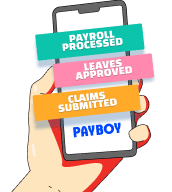Block leave is a valuable tool for maintaining employee well-being, enhancing operational efficiency, and ensuring compliance with industry regulations. In this guide, we will help you gain a better understanding of the intricacies of block leave. By implementing a clear, well-communicated policy, employers in Singapore can foster a healthier, more productive workplace.
What is block leave?
Block leave refers to a specific period during which employees are required to take time off work. Unlike regular annual leave, block leave is mandated by the employer and is usually implemented to ensure that employees take an extended break from their duties. This type of leave is commonly used in industries where the nature of the work requires employees to take a substantial break for risk management, prevent burnout, ensure proper rest, and maintain high levels of productivity and morale.
Who qualifies for block leave?
In Singapore, block leave policies can vary significantly between companies and industries. Typically, all employees within an organisation may be required to take block leave, especially in sectors where continuous operation and high levels of responsibility are critical. These sectors include:
- Financial Services: Due to the need for stringent regulatory compliance and to prevent fraudulent activities, employees in financial institutions often qualify for block leave.
- Healthcare: Medical professionals may be required to take block leave to ensure they are well-rested and can provide optimal care to patients.
- Aviation: Pilots and cabin crew are mandated to take block leave to manage fatigue and ensure safety.
However, the specifics of who qualifies for block leave will depend on the company's internal policies and the agreements set out in employment contracts.
Is block leave paid or unpaid in Singapore?
Block leave in Singapore is typically paid, aligning with the country's employment standards and regulations. Employees are entitled to their regular salary during the block leave period, provided they have accumulated sufficient leave entitlement. The Employment Act in Singapore stipulates that employees are entitled to paid annual leave, and this can be used for block leave purposes.
Employers should clearly communicate the terms of block leave, including whether it will be deducted from the employee's annual leave entitlement or provided as an additional benefit.
What’s the difference between block leave vs annual leave?
While block leave and annual leave both involve taking time off work, there are key differences:
- Purpose:
- Block leave: Typically mandated by the employer for specific reasons such as regulatory compliance, risk management, or ensuring employee well-being.
- Annual leave: Voluntary leave taken by employees at their discretion for personal reasons, vacations, or rest.
- Duration:
- Block leave: Usually spans a longer, continuous period, often 5 days to one week or more.
- Annual leave: Can be taken in shorter increments, such as single days or a few days at a time.
- Implementation:
- Block leave: Scheduled by the employer and often aligned with company-wide policies or industry regulations.
- Annual leave: Requested by the employee and subject to approval by the employer based on operational needs.
Tip: Searching for a comprehensive annual leave guide? Discover our well-packed information of Annual Leave guide for employers.
What are the important considerations for implementing block leave?
Implementing block leave requires careful planning and consideration. Here are some key factors to keep in mind:
- Operational continuity:
- Plan for adequate coverage during block leave periods to avoid disruptions in business operations.
- Implement cross-training programmes to ensure that other employees can cover critical tasks.
- Communication:
- Clearly communicate block leave policies to all employees, including the purpose, duration, and scheduling process.
- Provide advance notice to allow employees to prepare for their leave.
- Employee well-being:
- Consider the impact of block leave on employee morale and ensure that it is seen as a benefit rather than a burden.
- Encourage employees to use block leave for rest and rejuvenation.
- Documentation:
- Maintain accurate records of block leave entitlements and usage.
- Include block leave policies in employee handbooks and contracts.
Tip: Are you looking for more non-statutory leaves for your company? Explore our wide-range employee leave type guides to equip you with the important leave policy information!
Are employers required to implement block leave in their company?
In Singapore, there is no statutory requirement for employers to implement block leave, except in certain regulated industries such as financial services. For example, the Monetary Authority of Singapore (MAS) mandates block leave for key roles in financial institutions to mitigate operational risks and detect any irregularities during the employee's absence.
While not mandatory for all companies, implementing block leave can be a strategic decision to enhance employee well-being, improve operational efficiency, and ensure compliance with industry best practices.
Should I include a block leave clause in my employee’s contract?
Including a block leave clause in employment contracts can provide clarity and transparency for both employers and employees. Here are some reasons to consider adding such a clause:
- Clarity: Clearly outlines the terms and conditions of block leave, reducing the potential for misunderstandings.
- Compliance: Ensures that the company's block leave policy aligns with legal and regulatory requirements.
- Consistency: Standardises the approach to block leave across the organisation, promoting fairness and equity.
- Preparation: Helps employees plan their work and personal commitments around scheduled block leave periods.
What should I include in the block leave policy?
A well-drafted block leave policy should cover the following key elements:
- Purpose:
- Explain the rationale behind implementing block leave, such as regulatory compliance, risk management, or employee well-being.
- Eligibility:
- Define which employees are required to take block leave and any specific roles or departments that are covered by the policy.
- Duration and frequency:
- Specify the duration of block leave periods and how often they will be scheduled (e.g., annually or biannually).
- Notice period:
- Provide guidelines on how much advance notice will be given to employees before their block leave is scheduled.
- Compensation:
- Clarify whether block leave is paid or unpaid and how it will be accounted for (e.g., deducted from annual leave entitlement or provided as additional leave).
- Coverage and continuity:
- Outline the measures taken to ensure operational continuity during block leave periods, such as cross-training and temporary staff arrangements.
- Request and approval process:
- Detail the procedure for requesting and approving block leave, including any forms or documentation required.
- Exceptions and exemptions:
- Identify any exceptions to the block leave policy, such as critical roles that cannot be left unattended.
- Compliance and penalties:
- State the consequences of non-compliance with the block leave policy, both for the employer and the employee.
Streamline block leave management with Payboy’s Leave Tracking System!
Small and medium-sized enterprises (SMEs) often find leave management to be a pain point, and we can understand why:
- SMEs don’t have as many HR resources as larger businesses. As a result, they often have to rely on manual leave processes, which can be both time-consuming and error-prone.
- SMEs often have a more limited pool of employees to choose from when someone goes on leave. This can lead to disruptions in workflow and decreased productivity.
If leave isn't managed properly, it can have a negative impact on productivity and morale. Therefore, good HR software is an essential tool for any business that wants to stay on top of its leave entitlements and ensure its employees are getting the rest they deserve. Here are some benefits of using our leave management module:
Manage leaves digitally
Our leave management module is designed to streamline the leave management process, making it easy for employees to apply for leave and check leave balances, as well as for employers to approve and manage leave requests.
Employees can also easily submit supporting documents or certificates via the mobile app, so that all the documents are stored in a central database. No more missing documents!
Customise the leave policy that best fits your business needs
We'll provide you with a MOM-compliant setup to start with, but we are also ready to assist you in customising your leave policy to fit your business requirements. Check out how to customise settings for each leave type with Payboy, including shared parental leave!
Our Payboy Support Centre also helps to address most of the FAQs regarding other statutory leave entitlements asked by our customers:
Streamline your HR processes with Payboy today!
As a PSG-approved HRMS, Payboy provides a robust system to help you manage your HR tasks so that you can focus on your business and people!
With our wide range of modules, you can customise a solution to meet the specific needs of your business:
Payroll Processing | Leave Management | Claims Management | Applicant Tracking
Time Attendance | Shift Scheduling | Appraisal System | Inventory Management
Project Costing | Training Management






















